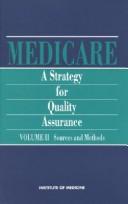| Listing 1 - 6 of 6 |
Sort by
|
Book
ISBN: 2911256093 9782911256097 235671183X Year: 2009 Publisher: Paris: Presses des mines,
Abstract | Keywords | Export | Availability | Bookmark
 Loading...
Loading...Choose an application
- Reference Manager
- EndNote
- RefWorks (Direct export to RefWorks)
Qu'est-ce que bien soigner? Dans ce livre provoquant et original, Annemarie Mol montre que ce n'est pas, comme on l'a beaucoup dit, laisser les patients choisir. À partir de l'exemple des personnes atteintes de diabète, l'auteur propose une nouvelle manière de prendre soin des personnes, qui ne les transforme pas en citoyens ou en consommateurs, mais qui les reconnaît comme corps et âmes souffrants, comme individus investis dans leur propre prise en charge, comme membres de collectifs multiples. Ce livre-manifeste n'est pas une critique de la médecine ou des pratiques de santé mais il en appelle à une transformation radicale de notre regard. Soigner, c'est prendre en compte la vie des personnes, leurs capacités et leurs incapacités, leurs entourages et leurs modes de vie. Remet-tant en cause les vertus trop consensuelles du libre choix, s'interrogeant sur les bonnes pratiques, Ce que Soigner veut dire non seulement intéressera les spécialistes de sciences sociales ou les patients actifs, mais il pourra aussi faire réfléchir les professionnels de la santé, les responsables de la politique sanitaire tout comme les militants et membres des associations.
Medical care --- Patient satisfaction --- Patients --- Evaluation --- Quality control --- Civil rights --- Patient satisfaction. --- Quality control. --- Evaluation. --- Health attitudes --- Medical personnel and patient --- Satisfaction --- Medical care - Evaluation --- Medical care - Quality control --- Patients - Civil rights --- médecine --- patients --- santé --- Patient rights --- Physician-patient relations
Book
ISBN: 0197641504 0197641482 0197641490 0197641474 Year: 2022 Publisher: New York, NY : Oxford University Press,
Abstract | Keywords | Export | Availability | Bookmark
 Loading...
Loading...Choose an application
- Reference Manager
- EndNote
- RefWorks (Direct export to RefWorks)
The events of 2020 were an inflection point in an American journey toward health and racial equity. Necessary Conversations: Understanding Racism as a Barrier to Achieving Health Equity extends a powerful call to action. RWJF's Sharing Knowledge conference was held in Jackson, Miss., a setting where it could build on its conviction that a Culture of Health is impossible without a commitment to racial equity. Hundreds of participants from around the country engaged in authentic dialogue about the systems and structures that are doing grave harm to people of color. With so many types of knowledge-builders in the room, a palette filled with blunt, provocative, and insistent ideas and strategies could be shared to inspire action. This sixth book in the Culture of Health series reflects a distinct shift in RWJF's emphasis, based on a growing body of evidence that racism is the underlying cause of so many poor health outcomes. RWJF is considering what it would take to overhaul institutions that treat people differently on the basis of their race and to make very intentional shifts in their investments to elevate that focus. They are recognizing they have to commit resources and join with others to support working to advance health and racial equity. They are deepening their understanding of what it means to build partnerships and community power and the centrality of leadership by those who are most affected by the decisions that influence their lives.
Social medicine --- Discrimination in medical care. --- Public health. --- Community health --- Health services --- Hygiene, Public --- Hygiene, Social --- Public health services --- Public hygiene --- Social hygiene --- Health --- Human services --- Biosecurity --- Health literacy --- Medicine, Preventive --- National health services --- Sanitation --- Medical care --- Systemic Racism --- Health Care Reform --- Medical Care--Quality Control --- United States --- Mississippi
Book
ISBN: 9783319149684 3319149679 9783319149677 3319149687 Year: 2015 Publisher: Cham : Springer International Publishing : Imprint: Springer,
Abstract | Keywords | Export | Availability | Bookmark
 Loading...
Loading...Choose an application
- Reference Manager
- EndNote
- RefWorks (Direct export to RefWorks)
This ground-breaking title presents an interdisciplinary introduction to the subject of Dependability and how it applies in medicine generally and in neurology in particular. Dependability is the term applied in engineering and industry to a service that is safe, reliable and trustworthy. Dependable systems use a variety of methods to deliver correct service in the face of uncertainty resulting from misleading, erroneous information, and system faults. Dependable systems result from the application of systematic methods in design, operation, and management to deliver their services. Dependability in Medicine and Neurology presents the philosophy and ideas behind the specific methods of dependability and discusses the principles in the context of medical care and neurologic treatment especially. Patient case vignettes are used widely to illustrate key points. A first-of-its-kind title and based on the author’s many years of teaching these principles to medical colleagues throughout the United States, Dependability in Medicine and Neurology will inspire readers to develop applications for their specific areas of clinical practice. Intended for physicians (especially neurologists), medical students, nurses, and health administrators, Dependability in Medicine and Neurology is an indispensable reference and important contribution to the literature.
Medicine & Public Health. --- Neurology. --- Psychiatry. --- Internal Medicine. --- Medicine. --- Internal medicine. --- Médecine --- Médecine interne --- Neurologie --- Psychiatrie --- Efficiency, Organizational. --- Health services administration. --- Medical care -- Quality control. --- Medicine --- Health & Biological Sciences --- Neurology --- Medical care --- Quality control. --- Health administration --- Health care administration --- Health care management --- Health sciences administration --- Health services management --- Administration --- Management --- Health planning --- Public health administration --- Medicine, Internal --- Medicine and psychology --- Mental health --- Psychology, Pathological --- Nervous system --- Neuropsychiatry --- Diseases --- Neurology .

ISBN: 1280843829 0199748128 9780199748129 9786610843824 6610843821 9781280843822 0195172264 9780195172263 0197707521 Year: 2006 Publisher: New York : Oxford University Press,
Abstract | Keywords | Export | Availability | Bookmark
 Loading...
Loading...Choose an application
- Reference Manager
- EndNote
- RefWorks (Direct export to RefWorks)
Written by leaders in the field of medical education and assessment, this is a theory-to-practice text focused on ways to evaluate professional behaviour.
Medicine --- Physicians --- Clinical competence --- Medical care --- Delivery of health care --- Delivery of medical care --- Health care --- Health care delivery --- Health services --- Healthcare --- Medical and health care industry --- Medical services --- Personal health services --- Public health --- Clinical skills --- Competence, Clinical --- Skills, Clinical --- Physicians, Rating of --- Rating of physicians --- Health Workforce --- Ability testing. --- Rating of. --- Professional ethics. --- Evaluation. --- Quality control --- Measurement. --- Ability testing --- Physician's Role --- Evaluation Studies as Topic --- Professional Competence --- Professional Practice --- Rating of --- Professional ethics --- Evaluation --- Measurement --- standards --- Medicine - Ability testing --- Physicians - Rating of --- Physicians - Professional ethics --- Clinical competence - Evaluation --- Medical care - Quality control - Measurement --- Professional Competence - standards --- Professional Practice - standards

ISBN: 0309042305 0309042380 9786610212637 1280212632 0309593395 0585339759 9786610212644 1280212640 0309559928 0585084777 9780585084770 9780585339757 Year: 1990 Publisher: Washington, D.C. : National Academy Press,
Abstract | Keywords | Export | Availability | Bookmark
 Loading...
Loading...Choose an application
- Reference Manager
- EndNote
- RefWorks (Direct export to RefWorks)
Medicare. --- Quality Assurance, Health Care. --- Health Care Quality Assessment --- Health Care Quality Assurance --- Healthcare Quality Assessment --- Healthcare Quality Assurance --- Quality Assessment, Healthcare --- Quality Assurance, Healthcare --- Quality Assessment, Health Care --- Assessment, Healthcare Quality --- Assessments, Healthcare Quality --- Assurance, Healthcare Quality --- Assurances, Healthcare Quality --- Healthcare Quality Assessments --- Healthcare Quality Assurances --- Quality Assessments, Healthcare --- Quality Assurances, Healthcare --- Health Insurance for Aged, Disabled, Title 18 --- Health Insurance for Aged, Title 18 --- Health Insurance for Aged and Disabled, Title 18 --- Insurance, Health, for Aged and Disabled --- United States. --- Medical care -- Quality control. --- Electronic books. -- local. --- Medical care --- Medicare --- Quality Assurance, Health Care --- United States --- North America --- Legislation as Topic --- Quality of Health Care --- Medical Assistance --- Insurance, Health --- Health Care Quality, Access, and Evaluation --- Insurance --- Public Assistance --- Health Care --- Health Services Administration --- Americas --- Social Control, Formal --- Financing, Organized --- Health Care Economics and Organizations --- Geographic Locations --- Financing, Government --- Economics --- Geographicals --- Quality control --- Quality control. --- Health insurance --- Older people --- Medicaid --- Medigap
Book
ISBN: 1447148746 1447148754 Year: 2014 Publisher: London : Springer London : Imprint: Springer,
Abstract | Keywords | Export | Availability | Bookmark
 Loading...
Loading...Choose an application
- Reference Manager
- EndNote
- RefWorks (Direct export to RefWorks)
Like other international jurisdictions, the Canadian health sector faces significant demands for change and improvement to meet the needs of the 21st Century. To achieve that goal, highly sophisticated and capable leaders are required across all dimensions of the health system. Bringing Leadership to Life in Health: LEADS in a Caring Environment examines the essence of leadership itself and what it means to be a leader in today’s world. The authors describe key challenges that demand reform in the health sector, examine why better leadership is the source code for better system performance, and look at the issues that stand in the way of getting that leadership. This book describes the five domains of the Caring Environment capabilities framework: Lead Self, Engage Others, Achieve Results, Develop Coalitions, and Systems Transformation. Bringing Leadership to Life in Health: LEADS in a Caring Environment is a simple, easily accessible, and research informed book which will explain the LEADS in a Caring Environment capabilities framework that has been adopted across Canada as the foundation for health leadership talent management. This book will illustrate this framework through supportive research, relevant stories solicited from health leaders at all levels as well as the inclusion of ‘learning moments’ to help the readers reflect on their own experiences.
Adult education. --- Medical care -- Quality control. --- Medicine. --- Practice of medicine. --- Public health -- International cooperation. --- World health. --- Health services administration --- Public health administration --- Leadership --- Health Care --- Health Occupations --- Personality --- Disciplines and Occupations --- Behavior and Behavior Mechanisms --- Psychiatry and Psychology --- Health Services Administration --- Leadership. --- Health administration --- Health care administration --- Health sciences administration --- Medical care --- Public health --- Health care management --- Health services management --- Administration --- Management --- Health administration. --- School management and organization. --- School administration. --- Lifelong learning. --- Medicine & Public Health. --- Medicine/Public Health, general. --- Health Administration. --- Administration, Organization and Leadership. --- Lifelong Learning/Adult Education. --- Ability --- Command of troops --- Followership --- Health planning --- Clinical sciences --- Medical profession --- Human biology --- Life sciences --- Medical sciences --- Pathology --- Physicians --- Adults, Education of --- Education of adults --- Education --- Continuing education --- Open learning --- Medical practice --- Practice of medicine --- Physician practice acquisitions --- Health Workforce --- Lifelong education --- Lifelong learning --- Permanent education --- Recurrent education --- Adult education --- Administration, Educational --- Educational administration --- Inspection of schools --- Operation policies, School --- Policies, School operation --- School administration --- School inspection --- School operation policies --- School organization --- Schools --- Organization --- Inspection --- Management and organization --- Continuing education.
| Listing 1 - 6 of 6 |
Sort by
|

 Search
Search Feedback
Feedback About UniCat
About UniCat  Help
Help News
News